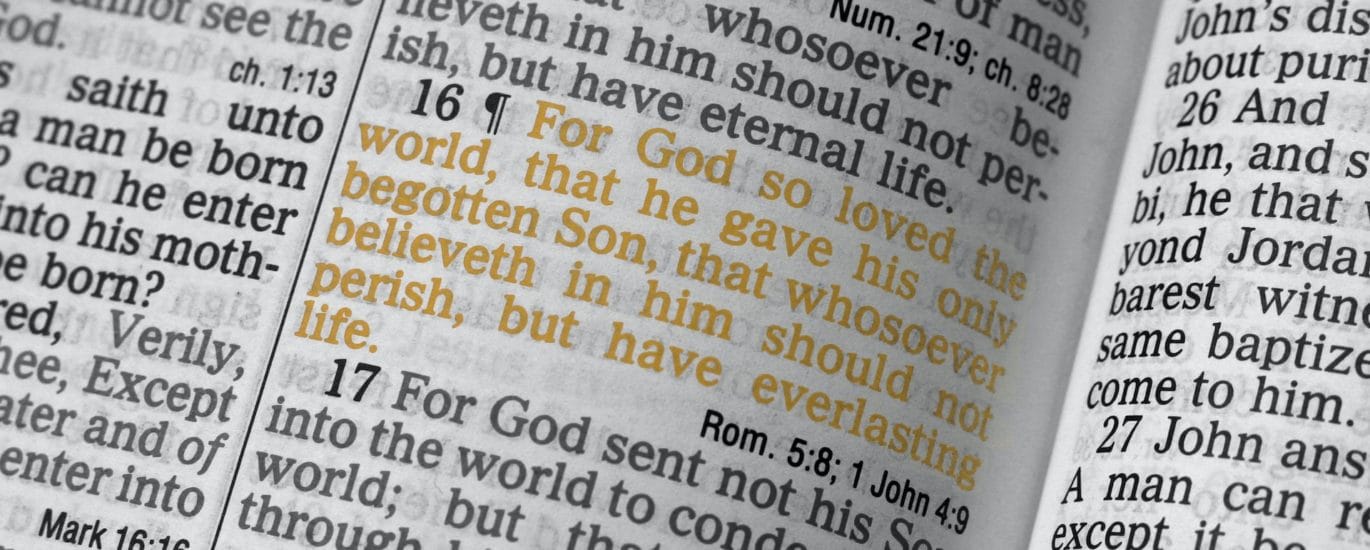By Darrell R. Hamilton, II
In the Spring of 2003, Rev. Dr. Jeremiah Wright, pastor emeritus of the Trinity United Church of Christ in Chicago, preached a Palm Sunday message titled “Confusing God and Government.” The sermon’s premise was drawn from Luke’s articulation of Jesus’ triumphal entry into Jerusalem (19:28-44), and with it Rev. Wright diagnosed the problem that befalls a nation that is blinded by its circumstances, fails to see the things that make for peace, and confuses God and government.
There is a stark difference between God and government. The main points of Rev. Wright’s sermon were: governments lie, governments change, and governments fail.
However, where governments lie, God does not lie. (Number 23:19). Where governments change, God does not change. (Malachi 3:6). And where governments fail, God does not fail.
The government failed in the Spring of 2008, five years after this sermon was preached, when the climax of Rev. Wright’s sermon was clipped without context. In the clip, we hear Rev. Wright’s most damning indictment of the failures of the United States government, saying of its treatment of citizens of African descent,
“The Government gives them the drugs. Builds bigger prisons. Passes a three-strike law and then wants us to sing ‘God, Bless America’ nah, nah, nah, not God, Bless America, ‘God, Damn America’ . . . for killing innocent people. God, damn America for treating her citizens as less than human. God, damn America as long as she tries to act like she is God, and she is supreme.”
But, in the Spirit of preachers and prophets of the Black Church tradition, Rev. Wright understood that the basis of a critique of our country and its failures is not rooted in hatred for said country. However, like the great sage James Baldwin articulated, critique of one’s nation is not predicated on hate but love and a desire for the country to live up to its professed ideals.
In the tradition of Martin Luther King, Jr., Malcolm X, James Cone, and others, what Jeremiah Wright understood is that you cannot wish evil on a nation that has already brought evil on itself. But what does it mean to “damn” something, and what is its origins in our tradition?
What does Damnation mean?
Etymologically, the word damn originates in French. The “word damner via the Latin ‘damnare,’ a derivative of the noun ‘damnum’ which was meant to convey ‘loss, harm’ (where we get our English word ‘damage’) and was not originally understood as a curse, nor judgment and condemnation.” However, “not until in the 13th Century did the word ‘damn’ come to be understood as judgment and condemnation legally and theologically.”
In one sense, to be damned was to be judged or condemned in light of “damage” that one inflicted on another. And it was the King James Bible (1611) that used the word damn and damnation in its translation of Greek words used to mean judgment, destruction, and condemnation that would be meted out in this life or the next.
This understanding of damnation is what Christians readily have to this day. However, there seems to be some confusion among Christians about how we ought to understand damnation and its relationship to our life of faith.
First, the Church thinks we are called to damn people. The Church historically and presently uses damnation as a weapon to subjugate people and groups to certain traditions and interpretations of faith. Even contemporary, progressive-minded Christians are guilty of damning people, except we don’t say “damn” we say “cancel.” And we not only cancel those who have sinned against us out of our lives, but we cancel them out of our hearts and cast them into outer darkness where “there is weeping and gnashing of teeth.”
However, Jesus’ lesson to his disciples in life and death is to forgive and not condemn (Matt. 18:21-22; Luke 23:24).
Second, God’s chief condemnation is of powers not people. Paul says to the church in Ephesus, “for we wrestle not against flesh and blood (people), but against principalities, against powers, against the rulers of the darkness of this world, against spiritual wickedness in high places’ ‘ (Eph. 6:12). And the principalities and powers are the nations, policies, systems, and institutions that work and strive against the justice of God (Matt. 25:31-46).
God condemns nations that do not care for the least of these. God casts down principalities and powers seeking to turn people from God and prioritize their own fleshly ends. And where there are people, prophets, priests, or politicians in bed with power, when God casts powers down there are those who will inevitably go down with it.
For the word of God in Isaiah says,
“For I am about to create new heavens and a new earth; the former things shall not be remembered or come to mind 18 But be glad and rejoice forever in what I am creating . . .” (65:17-18a)
Therefore, God will damn every power, policy, system, or institution that stands in the way of creating something new and raze the powers of this world to raise up the Kingdom of God in its place.
Jeremiah was right
Jeremiah was right and some powers need to be damned! It is our duty as disciples of Jesus to call God to damn such things that take God’s name in vain to prevent the Kingdom of God from returning near.
God, damn a fascist movement seeking to destroy lives and our nation’s democracy.
God, damn a corrupt Supreme Court that disgraces its oath to act justly and impartially.
God, damn a movement of fraudulent evangelicalism that calls itself “moral.” That would sweep under the rug its practices of abuse. Use God’s name to wage war against those whom God came to save, and reduce the entire word of God to two issues of gun rights and abortion.
God, damn a hypocritical movement of Christian nationalism that would twist God’s word and seek to confuse God and government.
God, damn a church that stays quiet while damage is being done on God’s people. Fails to protect young girls and young boys by hiding predatory priests rather than casting them out of power, making itself a den for robbers and thieves.
God, damn the church as long as it continues to work against God’s desire for full reclamation of the earth and all creation.
God will stop at nothing to reclaim God’s people, comfort our souls, and transform all created things. And, we rejoice knowing the words in John 3:16-17,
“16 For God so loved the world that He gave His only begotten Son, that whoever believes in Him should not perish but have everlasting life. 17 For God did not send His Son into the world to condemn the world, but that the world through Him might be saved.”
And although the powers of the world wish to thwart God’s place in the earth—you can’t keep down what God wants lifted up. You can’t keep from being built what God wants to build up. You can’t keep from being restored and reclaimed what God seeks to restore and reclaim because God never fails!
“for I am about to create Jerusalem as a joy
and its people as a delight.
19 I will rejoice in Jerusalem
and delight in my people;
no more shall the sound of weeping be heard in it
or the cry of distress.”

Darrell R. Hamilton, II is an ordained Baptist minister residing in Boston, Massachusetts and is impassioned by the way politics and faith merge together in the Christian theological traditions of justice and liberation. Currently, Darrell serves as the Protestant Chaplain at Babson College in Wellesley, Massachusetts. Darrell previously served as the Pastor for Formation and Outreach at First Baptist Church in Jamaica Plain, MA, and an Executive Minister at Middle Collegiate Church in New York City. Darrell is a graduate of Wake Forest School of Divinity where he attained his Masters of Divinity degree May 2017.




Recent Comments